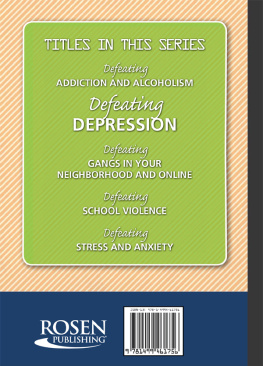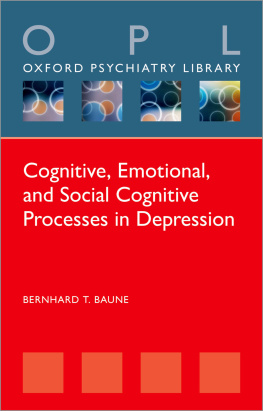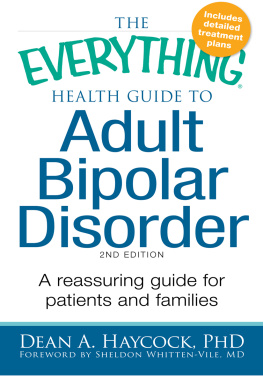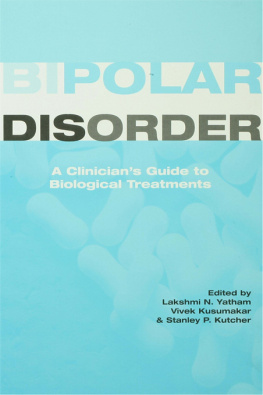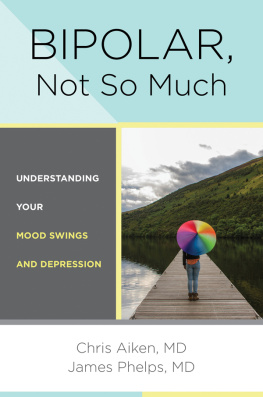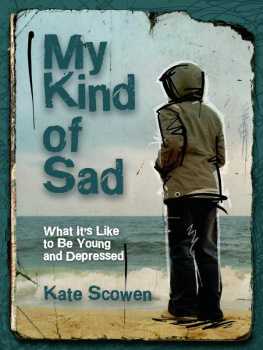Cover
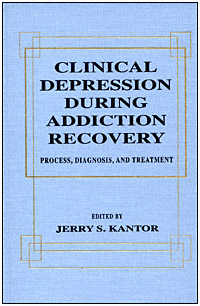
| title | : | Clinical Depression During Addiction Recovery : Process, Diagnosis, and Treatment |
| author | : | Kantor, Jerry S. |
| publisher | : | Informa Healthcare |
| isbn10 | asin | : | 0824796225 |
| print isbn13 | : | 9780824796228 |
| ebook isbn13 | : | 9780585376561 |
| language | : | English |
| subject | Depression, Mental--Treatment, Recovering addicts--Mental health, Depressive Disorder--diagnosis, Depressive Disorder--therapy, Substance Dependence--rehabilitation. |
| publication date | : | 1996 |
| lcc | : | RC537.C558 1996eb |
| ddc | : | 616.85/27 |
| subject | : | Depression, Mental--Treatment, Recovering addicts--Mental health, Depressive Disorder--diagnosis, Depressive Disorder--therapy, Substance Dependence--rehabilitation. |
Page i
Clinical Depression during Addiction Recovery
Process, Diagnosis, and Treatment
Edited by
Jerry S. Kantor
Addiction Recovery Centre
Fort Myers, Florida

Page ii
Library of Congress Cataloging-in-Publication Data
Clinical depression during addiction recovery: process, diagnosis,
and treatment / edited by Jerry S. Kantor.
p. cm.
Includes bibliographical references and index.
ISBN 0-8247-9622-5 (hardcover: alk. paper)
1. Depression, MentalTreatment. 2. Recovering addictsMental
health. I. Kantor, Jerry S.
[DNLM: 1. Depressive Disorderdiagnosis. 2. Depressive Disorder
therapy. 3. Substance Dependencerehabilitation. WM 171 C6405
1996]
RC537.C558 1996
616.8527dc20
DNLM/DLC
for Library of Congress 95-45645
CIP
The publisher offers discounts on this book when ordered in bulk quantities. For more information, write to Special Sales/Professional Marketing at the address below.
This book is printed on acid-free paper.
Copyright 1996 by MARCEL DEKKER, INC. All Rights Reserved.
Neither this book nor any part may be reproduced or transmitted in any form or by any means, electronic or mechanical, including photocopying, micro-filming, and recording, or by any information storage and retrieval system, without permission in writing from the publisher.
MARCEL DEKKER, INC.
270 Madison Avenue, New York, New York 10016
Current printing (last digit):
10 9 8 7 6 5 4 3 2 1
PRINTED IN THE UNITED STATES OF AMERICA
Page iii
To my two beautiful children,
Justin and Jessica
Page iv
Page v
Foreword
In addition to my other numerous acquaintances, I have one more intimate confidant. My depression is the most faithful mistress I have knownno wonder, then, that I return the love.
Soren Kierkegaard (1843), Diapsalmata
Depression:
A Broad-Spectrum Disorder
Depressive disorders range from a relatively simple, time-limited dysthymia to a more complicated and enduring bipolar illness with intense depression. Depression, often characterized by strong feelings of sadness, guilt, worthlessness, and malaise, also can include symptoms that include sleep disorder, isolation, lack of sexual interest, loss of appetite, suicidal ideation and suicidal behaviors. Bipolar affect disorder is a more complex depression that can include psychosis and a wide variety of other sequelae. There is no single entity that we can call depression. Instead, depression is best thought of as a broad-spectrum disorder. This disorder tends to shift perspective toward events past and preclude interest in the future.
Some depressive episodes can be stimulated by the cessation of psychoactive drug use. For example, stopping the regular and immoderate use of cocaine can lead to a dysthymic reaction (i.e., anhedonia), on the one hand, and to acute suicidal behavior, on the other. When patients first enter treatment for substance-abuse disorders, they often
Page vi
appear depressed; however, as treatment continues, this depression often begins to remit (e.g., Jaffe and Ciraulo, 1986). The waxing and waning of depression during substance abuse and recovery led clinicians to wonder whether depression causes substance abuse or substance abuse stimulates depression? If substance abuse does stimulate depression, does the depression reside latently, awakened only by the trauma of addiction or, alternatively, can substance abuse give rise to original depression? These important questions are rarely addressed. Kantor and his contributors set out to remedy this situation as well as other vexing issues in Clinical Depression During Addiction Recovery: Processes, Diagnosis, and Treatment .
Depression and Substance AbuseCart or Horse?
Addiction is a very complex and unyielding phenomenon. Recovery from addiction can be as perplexing as addiction. As I mentioned before, while many patients who enter treatment reveal depression that meets diagnostic levels, depression can also emerge after addiction wanes and recovery emerges. This coincidence of depression and substance abuse often led both casual and professional observers to conclude that these patterns represent an enduring addiction motif. These confluent conditions expose themselves regularly as a pattern of comorbidity that is common among patients struggling with addictive disorders (e.g., Weiss et al., 1988). Whenever a substance-abusing patient presents with depression, clinicians must investigate antecedent and consequent events. Is the depression antecedent to the substance-abusing pattern or has the use of psychoactive substances insidiously stimulated depression? When depression precedes substance abuse, a series of possibilities exist to help both patient and provider to understand the complex patterns of substance abuse. However, before discussing some of these treatment considerations, it is very important to remember that for many patients depression actually results fromrather than engendersthe experience of protracted substance abuse. Furthermore, and less well recognized, depression can be stimulated by (1) the recession of addiction, (2) the onset of abstinence, and (3) ongoing tasks of recovery.
This book offers clinicians essential information about recovery-stimulated depression. For example, during recovery and without the
Page vii
object of their addiction, patients often sense that they have lost an important organizing element of their daily life; this loss of controlquite different from the experience of control lost during addictioncan stimulate a depressive episode. Once in recovery and without the object of their addiction to assist in shifting undesirable emotional states, many patients are unable to regulate either their behaviors or their impulses as they have in the past. Under these conditions, feelings of helplessness and dysthymia may be stimulated. Similarly, when some people with addiction stop their pattern of intemperance, they become acutely aware of the painful problems that were stimulated by their excessive behaviors. These experiences often can precipitate painful anxious depression. Diminished self-control, exacerbated by experiencing, first, the losses commonly associated with a substance-abusing lifestyle and its other adverse consequences (e.g., health, social, and vocational problems) and, second, the losses associated with abstinence and recovery, can lead to dysthymia and depression.
Next page

